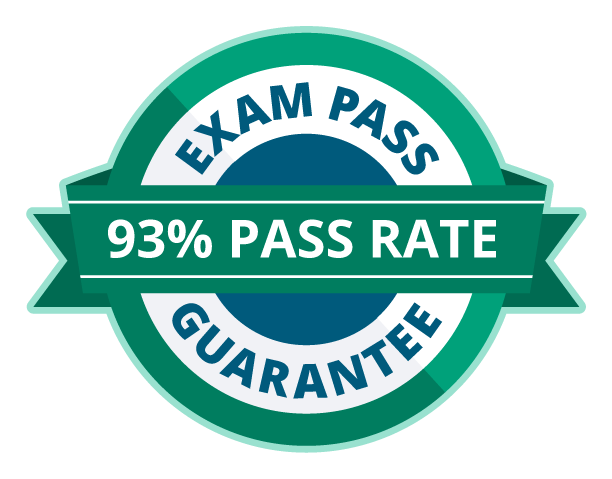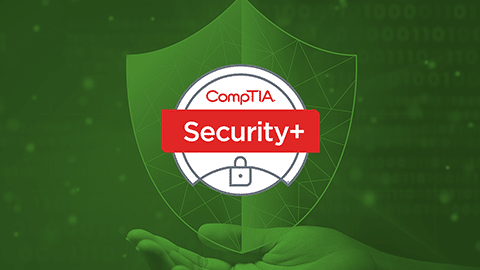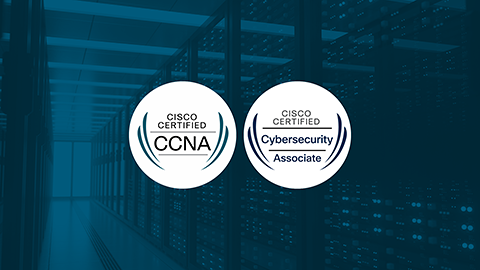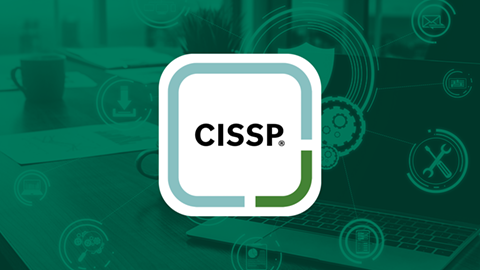
Cisco Certified Network Associate (CCNA) & Cybersecurity Associate Training Boot Camp Dual Certification
Elevate your networking career with our comprehensive Cisco CCNA training. This intensive seven-day boot camp delivers hands-on experience with Cisco router and switch configuration while preparing you to earn two valuable Cisco certifications. Our CCNA certification training combines practical skills with expert instruction to transform network engineers and administrators into industry-leading professionals.

What you'll learn
Training overview
Our CCNA boot camp provides intensive, hands-on preparation for both the CCNA Associate and Cisco Certified Cybersecurity Associate (formerly CyberOps) exams. This dual-certification program delivers comprehensive CCNA training and certification in just seven days.
When you attend our CCNA certification classes, expert instructors guide you through practical labs within our Networking Cyber Range. This online CCNA training covers essential topics that prepare you for real-world networking challenges:
- Networking fundamentals: Build a solid foundation in core networking concepts
- Network security: Master security protocols and threat mitigation strategies
- Automation: Learn to streamline network operations with automation tools
Our CCNA course online combines theoretical knowledge with practical application, ensuring you're fully prepared to pass both certification exams and excel in your role.
What's included
Everything you need to know about CCNA certification training

- 90-day extended access to Boot Camp components, including class recordings
- 100% Satisfaction Guarantee
- Exam Pass Guarantee
- Exam voucher
- Free 90-day Infosec Skills subscription (access to 1,400+ additional courses and labs)
- Hands-on cyber ranges and labs
- Knowledge Transfer Guarantee
- Onsite proctoring of exam
- Pre-study learning path
- Unlimited practice exam attempts
Syllabus
Training schedule
Day 1
Network fundamentals
- Role and function of network components
- Characteristics of network topology architectures
- Compare and contrast network topologies
- Physical interface and cabling types
- Interface and cable issues (collisions, errors, mismatch duplex, and/or speed)
- TCP and UDP
- Configuring and verifying IPv4 addressing and subnetting
- The need for private IPv4 addressing
- Configuring and verifying IPv6 addressing and prefix
- IPv6 address types
- Verifying IP parameters for client OS (Windows, Mac OS, Linux)
- Wireless principles
- Virtualization fundamentals (virtual machines)
- Switching concepts
Network fundamentals continued
Optional group & individual study
Schedule may vary from class to class
Day 2
Network access
- Configuring and verifying VLANs (normal range) spanning multiple switches
- Configuring and verifying interswitch connectivity
- Trunk ports
- 802.1Q
- Native VLAN
- Configuring and verifying Layer 2 discovery protocols (Cisco Discovery Protocol and LLDP)
- Configuring and verifying (Layer 2/Layer 3) EtherChannel (LACP)
- The need for and basic operations of Rapid PVST+ Spanning Tree Protocol
- Cisco Wireless Architectures and AP modes
- Physical infrastructure connections of WLAN components
- AP and WLC management access connections
- Configuring the components of a wireless LAN access for client connectivity
Network access continued
Optional group & individual study
Schedule may vary from class to class
Day 3
IP connectivity
- Components of routing table
- Determining how a router makes a forwarding decision by default
- Configuring and verifying IPv4 and IPv6 static routing
- Configuring and verifying single area OSPFv2
- The purpose of first hop redundancy protocol
- Configuring and verifying inside source NAT using static and pools
- Configuring and verifying NTP operating in a client and server mode
- Role of DHCP and DNS within the network Function of SNMP in network operations
- Use of syslog features including facilities and levels
- Configuring and verifying DHCP client and relay
- Understanding the forwarding per-hop behavior (PHB) for QoS such as classification, marking, queuing, congestion, policing, shaping
- Configuring network devices for remote access using SSH
- Capabilities and function of TFTP/FTP in the network
IP connectivity continued
Optional group & individual study
Schedule may vary from class to class
Day 4
IP services
Security fundamentals
- Security program elements
- Configuring device access control using local passwords
- Security password policies elements
- Remote access and site-to-site VPNs
- Configuring and verifying access control lists
- Configuring Layer 2 security features
- Authentication, authorization and accounting
- Wireless security protocols (WPA, WPA2 and WPA3)
- Configuring WLAN using WPA2 PSK using the GUI
- Traditional networks vs. controller-based networking
- Controller-based and software defined architectures
- Traditional campus device management vs. Cisco DNA Center enabled device management
- Characteristics of REST-based APIs (CRUD, HTTP verbs and data encoding)
- Capabilities of configuration management mechanisms Puppet, Chef and Ansible
- Interpreting JSON encoded data
Optional group & individual study
Schedule may vary from class to class
Day 5
Automation and programmability
Exam prep
Take CCNA 200-301 exam
Optional group & individual study
Schedule may vary from class to class
Day 6
Security concepts
- Describe the CIA triad
- Compare security deployments & concepts
- Describe the principles of the defense-in-depth strategy
- Compare access control models
- Describe terms as defined in CVSS
- Identify the challenges of data visibility (network, host, and cloud) in detection
- Identify potential data loss from provided traffic profiles
- Interpret the 5-tuple approach to isolate a compromised host in a grouped set of logs
- Compare rule-based detection vs. behavioral and statistical detection
Security monitoring
- Compare attack surface and vulnerability
- Identify the types, impact and users of data provided by these technologies
- Describe network, web application, social engineering and endpoint-based attacks
- Describe evasion and obfuscation techniques, such as tunneling, encryption and proxies
- Describe the impact of certificates on security (includes PKI, public/private crossing the network, asymmetric/symmetric)
- Identify the certificate components in a given scenario
- Cipher-suite
Host-based & network intrusion analysis
- Describe the functionality of endpoint technologies in regard to security monitoring
- Identify components of an operating system (such as Windows and Linux) in a given scenario
- Describe the role of attribution in an investigation
- Identify type of evidence used based on provided logs
- Compare tampered and untampered disk image
- Interpret operating system, application, or command line logs to identify an event
- Interpret the output report of a malware analysis tool (such as a detonation chamber or sandbox)
- Compare deep packet inspection with packet filtering and stateful firewall operation
- Compare inline traffic interrogation and taps or traffic monitoring
- Compare the characteristics of data obtained from taps or traffic monitoring and transactional data (NetFlow) in the analysis of network traffic
- Extract files from a TCP stream when given a PCAP file and Wireshark
- Identify key elements in an intrusion from a given PCAP file
- Interpret the fields in protocol headers as related to intrusion analysis
- Interpret common artifact elements from an event to identify an alert
- Interpret basic regular expressions
Optional group & individual study
Schedule may vary from class to class
Day 7
Security policies and procedures
- Describe the elements in an incident response plan as stated in NIST.SP800-61
- Apply the incident handling process (such as NIST.SP800-61) to an event
- Map elements to these steps of analysis based on the NIST.SP800-61
- Map the organization stakeholders against the NIST IR categories (CMMC, NIST.SP800-61)
- Describe concepts as documented in NIST.SP800-86
- Identify these elements used for network profiling
- Identify these elements used for server profiling
- Classify intrusion events into categories as defined by security models
- Describe the relationship of SOC metrics to scope analysis
Exam prep
Take 200-201 exam
Guaranteed results
Our Boot Camp guarantees

Exam Pass Guarantee
If you don’t pass your exam on the first attempt, get a second attempt for free. Includes the ability to re-sit the course for free for up to one year (does not apply to CMMC-AB Boot Camps).

100% Satisfaction Guarantee
If you’re not 100% satisfied with your training at the end of the first day, you may withdraw and enroll in a different online or in-person course.

Knowledge Transfer Guarantee
If an employee leaves within three months of obtaining certification, Infosec will train a different employee at the same organization tuition-free for up to one year.
Who should attend

This CCNA certification course is designed for IT professionals ready to enhance their network skills and advance their careers:
- Network engineers seeking to validate their expertise
- Network administrators looking to expand their skill set
- Systems administrators transitioning into networking roles
- System engineers managing network infrastructure
- IT managers and directors overseeing network operations
- Anyone looking to improve their networking capabilities
Whether you're new to Cisco technologies or building on existing knowledge, our Cisco CCNA course equips you with the skills to become a front-runner in the networking field.
What makes the Infosec CCNA prep course different?
Current exam alignment: Our CCNA training materials stay fully updated and synced with the latest exam version, so you're always studying the most relevant content.
Immediate access: Enroll in our CCNA class online and gain instant access to comprehensive prep materials, allowing you to prepare before your boot camp begins.
Practice resources: Access CCNA prep exam questions designed to mirror actual certification exam formats and content.
Exam Pass Guarantee: With 20 years of training experience, we stand behind our Cisco certified network associate training with an Exam Pass Guarantee. If you don't pass the exam on your first attempt, we'll pay for your second exam at no additional cost.
Our CCNA coaching online approach combines the flexibility of remote learning with the structure and support of instructor-led training.
Meets 8570.1 requirements
Attention DoD Information Assurance workers! This boot camp helps meet U.S. Department of Defense Directive 8570.1 requirements for department employees or contractors engaged in work related to information security.
Before your Boot Camp
Prerequisites
What's next?
After you finish the CCNA Dual Certification Boot Camp

Upon completing this CCNA certification training, you'll earn two valuable Cisco certifications:
- CCNA: The foundational certification for all Cisco certification tracks
- Cisco Cybersecurity Associate: Specialized certification for Security Operations Center (SOC) roles
These dual credentials position you for cybersecurity analyst roles and SOC team positions where you'll detect and respond to network security threats. The CCNA certification serves as your foundation for pursuing advanced Cisco specializations.
Exam Prep
What tips should I know when preparing for the CCNA and Cisco Cybersecurity Associate exam?
For the CCNA exam, review these core topic areas:
- Network fundamentals
- IP connectivity and services
- Security fundamentals
- Network access
- Automation and programmability
Practice with exam-style questions to familiarize yourself with the format and question types. Need guidance on where to start? Access our comprehensive exam overview covering what's tested, question counts, recent changes and expert preparation strategies.
The Cisco Cybersecurity Associate exam builds on CCNA knowledge, testing your expertise in:
- Security concepts and monitoring
- Host-based analysis techniques
- Network intrusion detection and analysis
- Security policies and procedures
Our CCNA course provides integrated preparation for both exams, ensuring you're ready to succeed.
Career Opportunities
What are the career opportunities like for CCNA certified professionals?
As organizations increasingly depend on robust network infrastructure, demand for skilled CCNA professionals continues growing. The Bureau of Labor Statistics projects 3% employment growth for computer system administrators from 2021 to 2031.
Your CCNA security certification and Cybersecurity Associate credentials open doors to roles including:
- Network engineer
- Senior network engineer
- Network administrator
- Information technology manager
- Information technology director
With dual certification from our CCNA class, you'll qualify for opportunities previously beyond reach, positioning yourself as a competitive candidate in the networking job market.
What job titles are most common for people with CCNA certification?
Some common positions that this certification can help you land include:
-

Network administrators
-

Systems administrators
-

IT managers/directors
-

Network engineers
FAQ
Frequently asked questions
What's the value in earning the CCNA certification?
The CCNA ranks among the most respected entry-level IT certifications available today. Earning your CCNA demonstrates to colleagues and employers that you're a qualified networking professional capable of managing small to medium-sized networks in real-world environments.
What are the prerequisites for earning the CCNA?
The CCNA exam has no formal prerequisites or specific degree requirements. However, we recommend at least two years of real-world networking experience to help you grasp CCNA concepts more effectively. Familiarity with routing, switching and TCP/IP protocol provides a strong foundation.
How does the CCNA examination process work?
The CCNA exam (200-301), released in February 2020, is a 120-minute assessment. According to Cisco, "This exam tests a candidate's knowledge and skills related to network fundamentals, network access, IP connectivity, IP services, security fundamentals and automation and programmability."
What format are the exam questions? What do I need to score to pass?
Most questions use multiple-choice format, supplemented by drag-and-drop exercises and simulation questions. Cisco notes that "Passing scores are set by using statistical analysis and are subject to change.
How long is the CCNA certification good after you pass the test? What are the renewal requirements?
CCNA certifications remain valid for three years from the issue date. You can renew before expiration by passing designated recertification exams. Visit Cisco's Career Certifications page for detailed information on CCNA recertification requirements
What does CCNA boot camp cost?
Visit our CCNA boot camp pricing page to learn more about costs and available financing options for your CCNA study.
Average Salary
CCNA certification salary expectations
CCNA professionals earn competitive compensation across industries. While salaries vary based on experience, location and sector, CCNA professionals earn an average of $93,071 annually. Read our CCNA salary information article to access the latest data and explore your earning potential in this growing field.
View all schedule options
Quick facts
- Duration
- 7 days
- Method
- Live online or team onsite
- Level
- 0-1 year of professional experience
- Average salary
- $93,071
- Meets 8570.1 DoD requirements
Award-winning training you can trust




Ready to discuss your training goals? We've got you covered.

Unlock team training discounts
If you’re like many of our clients, employee certification is more than a goal — it’s a business requirement. Connect with our team to learn more about our training discounts.
Request Team PricingQuick facts
- Duration
- 7 days
- Method
- Live online or team onsite
- Level
- 0-1 year of professional experience
- Average salary
- $93,071
- Meets 8570.1 DoD requirements
Award-winning training you can trust




Explore our top boot camps





